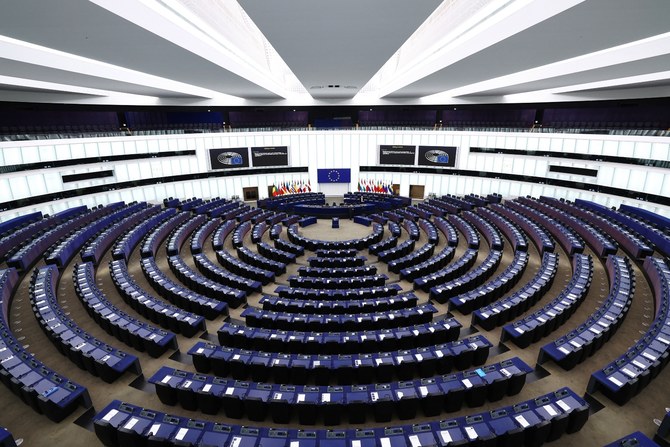
Challenges constantly arise in Turkish foreign policy.
The most recent was Turkey’s purchase of the Russian air defense system, the S-400. Ankara’s position remained unchanged in the face of US threats to impose sanctions under the Countering American Adversaries Through Sanctions Act (CAATSA). US President Donald Trump has refrained from blaming Turkey for purchasing the S-400, so even if sanctions are imposed, they are likely to be minor, but a strong bipartisan lobby in the US Congress against nations snubbing US products in favor of Russian military hardware may see it introduce other measures that the president may not be able to circumvent. Turkish involvement in the US’s F-35 program is already in doubt.
Syria is another open wound in US-Turkish relations. Ankara has said for years that it might carry out operations against Kurdish forces, who now control a belt of territory from Iraq to the Mediterranean. But to do so without the explicit blessing of Washington would be another provocation to the Trump administration.
Idlib is another serious problem. Russian-supported Syrian troops recently seized two new settlements south of the city, despite repeated requests to Moscow that Damascus cease its activities in the area. In return, Russia has demanded Turkey cease its support of various armed opposition factions operating in Idlib. Turkey has largely complied, but some factions it refuses to abandon, despite UN Security Council Resolution 2254 designating them terrorist organizations. Russia reiterated last week, at a conference in Astana, that all Turkish-backed opposition fighters should withdraw to a distance of 20 kilometers from the de-escalation line.
Ankara has said for years that it might carry out operations against Kurdish forces, who now control a belt of territory from Iraq to the Mediterranean. But to do so without the explicit blessing of Washington would be another provocation to the Trump administration.
Yasar Yakis
Oil and gas exploration activities in the east of the Mediterranean also provide problems. Turkey has yet to negotiate with its neighbors the delineation of the borders of its Exclusive Economic Zone (EEZ) in the Aegean and Mediterranean. Israel, Cyprus, Egypt, Greece and Lebanon have done it and divided it into parcels, auctioning areas off to international oil and gas exploration companies. But since Ankara has not done the same, there are overlapping areas where Turkey claims sovereignty that is not recognized under international law. This has caused problems between Turkey and Cyprus, because the EU considers the Cypriot EEZ as its own EEZ. The EU Council recently adopted a series of measures to be imposed on Turkey, including the suspension of all Turkish-EU high level meetings, talks on an air transport agreement, and the cutting of the €145.8 million ($162.2 million) allocated to Turkey in pre-accession support. Furthermore, the EU Commission asked the European Investment Bank to review credit support extended to Turkey, and reviewed financial support provided to Ankara for gas exploration activities.
Turkey currently has a dispute with Greece for the delineation of territorial waters and the continental shelf in the Aegean Sea; the FIR (Flight Information Region) line over the Aegean Sea; the demilitarized status of several Greek islands in the Aegean Sea; sovereignty of several uninhabited Aegean islands, rocks or geographic formations; and the rights of the Turkish Muslim community in western Thrace (northern Greece).
The Cyprus question is perhaps the most important problem Turkey has to face. Ankara insists on the political equality of the Turkish and Greek Cypriot peoples of the island and on the establishment of a bi-communal and bi-zonal State of Cyprus, something both Cypress and Greece consider unacceptable.
All these foreign policy issues come on top of serious economic difficulties and the defeat that the ruling Justice and Development Party (AKP) suffered in the local elections of March 31 this year.












